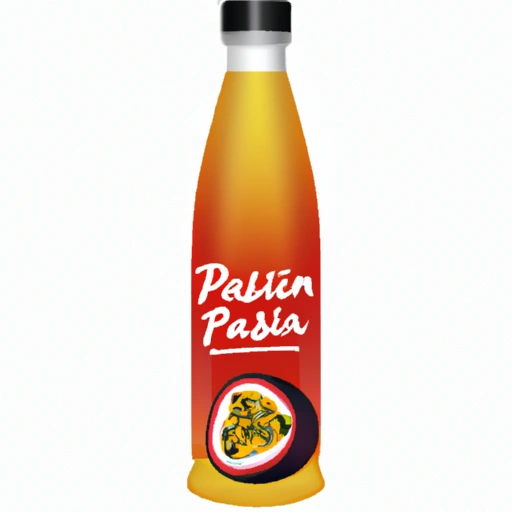Passionfruit Juice
Description

Passionfruit juice is a tropical beverage derived from the pulp of the passion fruit, which is known for its dynamic flavor profile that ranges from sweet to tart. This juice is a popular ingredient around the world and is often appreciated for its aromatic fragrance and vibrant color. Extracted from the Passiflora edulis species, passionfruit juice adds a burst of exotic taste to various dishes and drinks.
Common uses
Passionfruit juice is commonly used as a flavor enhancer in beverages, desserts, sauces, and dressings. It's also popular as a stand-alone drink, whether freshly squeezed or as a part of fruit blends.
Nutritional value
Calories
One cup (about 236 ml or 8 fl oz) of passionfruit juice contains approximately 126 calories (528 kJ).
Protein
Passionfruit juice provides about 2.2 grams of protein per cup.
Fat
This juice is virtually fat-free, with less than 0.7 grams of fat per cup.
Carbohydrates
It contains around 29 grams of carbohydrates per cup, most of which are natural sugars and dietary fiber.
Vitamins
Rich in vitamin C, passionfruit juice provides a substantial amount of this antioxidant, with one cup offering about 71 mg, which is around 79% of the recommended daily value. It is also a source of vitamins A and K.
Minerals
The juice contains minerals such as potassium, magnesium, and iron. Potassium content is about 687 mg per cup, which is beneficial for heart health.
Health benefits
Due to its high vitamin C content, passionfruit juice boosts the immune system and may help in preventing common colds and flu. The dietary fiber aids digestion and may contribute to heart health by improving cholesterol levels. The antioxidants present in the juice help to combat free radicals, thus potentially reducing the risk of chronic diseases.
Potential risks
While passionfruit juice is healthy for most people, it contains compounds like tyramine which can trigger headaches in some individuals, particularly those with a sensitivity to this substance. Also, due to its high natural sugar content, it should be consumed in moderation, especially by those monitoring their sugar intake.
Common recipes
Passionfruit juice is used in a variety of recipes such as tropical smoothies, cocktails like the Passionfruit Martini, salad dressings, marinades, and desserts including mousses and fruit tarts.
Cooking methods
The juice is typically used fresh and does not require cooking. However, it can be reduced to create syrups or incorporated into cooked sauces and glazes.
Pairing with other ingredients
Passionfruit juice pairs well with other tropical fruits such as mango, pineapple, and coconut. It also complements the flavors of seafood, poultry, and even certain types of cheese like mascarpone and ricotta.
Summary
Passionfruit juice is a versatile, tropical ingredient that not only adds a unique flavor to a plethora of dishes but also offers significant nutritional and health benefits. Its exotic taste and fragrance can elevate both sweet and savory recipes, making it a favorite among chefs and food enthusiasts worldwide.